What's New
Displaying results 2821 - 2830 of 4914
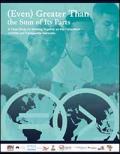
Resource | Publications,
“(Even) Greater Than the Sum of Its Parts: A Case Study on Working Together as the Consortium of MSM and Transgender Networks” documents the impact of the Consortium’s efforts and describes the added value of collaboration. The primary context of the case study is the Consortium’s implementation of two grants by the Robert Carr civil society Networks Fund (RCNF) over the past two years. The Case Study highlights multiple examples of how working in a Consortium has benefited member networks and MSM and transgender communities in general.
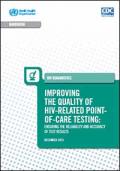
Resource | Tools,
This handbook has been created to address the weaknesses identified in existing point-of-care testing programmes and to assist service providers in adhering to a new set of minimum standards that promote and ensure quality assurance for HIV-related point-of-care testing.
This handbook describes the quality assurance cycle, a three-phased process developed to assist health-care providers and stakeholders in planning, implementing and sustaining quality assurance for HIV-related point-of-care testing.
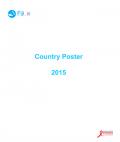
Resource | Fact Sheets,
Fiji country poster prepared by UNAIDS Regional Support Team for Asia and the Pacific and Data Hub.
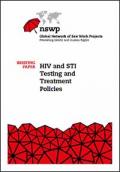
Resource | Publications,
This briefing paper explores sex workers' experiences of HIV and STI testing and treatment programmes from a global perspective. Sex workers are rarely included in the development and implementation of programming. Programming that does exist often violates the rights of sex workers. Through case studies and interviews, this briefing paper demonstrates there is a need for greater investment in appropriate, high-quality, rights-based services, and research led by sex workers in order to meet the specific needs of this population.

Resource | Guidelines,
This is a 7-page guide to the Stigma and Discrimination Experienced by Sex Workers Living with HIV briefing paper. It looks at the different types of stigma and discrimination experienced by sex workers living with HIV globally. This community guide provides recommendations for policies and practices which respect their human rights. It uses case studies that highlight the experiences of sex workers living with HIV and the efforts required to meet their needs, and advocate for their rights.

Resource | Publications,
This Strategic Plan sets out the key directions for the Global Network of Sex Work Projects (NSWP) in 2016–20. It outlines how – in those five years – NSWP will build on its significant achievements and lessons to date, while also strengthening critical areas of its work and responding to a changing and challenging environment.
The Strategic Plan 2016–20 is the result of extensive consultation among NSWP’s members, as well as other stakeholders – Board, staff, donors and partners. The consultation was led by an independent Global Consultant. They were supported by independent Regional Consultants who, in turn, coordinated local Key Informants to carry out in-depth national consultations with NSWP members in selected countries.

Resource | Publications,
This joint briefing paper by NSWP and INPUD highlights the specific needs and rights of sex workers who use drugs, as a community that spans two key populations. This document provides an overview of some of the most endemic and substantive ways in which sex workers who use drugs face double criminalisation and associated police harassment, intersectional stigma, compounded marginalisation and social exclusion, heightened interference and harassment from healthcare and other service providers, infantilisation, pathologisation, and an associated undermining of agency, choice, and self-determination.
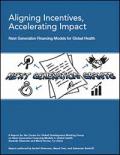
Resource | Publications,
Founded in 2002, the Global Fund to Fight AIDS, Tuberculosis and Malaria (the Global Fund) is one of the world’s largest multilateral health funders, disbursing $3–$4 billion a year across 100-plus countries.
Many researchers and policymakers have hypothesized that models tying grant payments to achieved and verified results—referred to in this report as next generation financing models—offer an opportunity for the Global Fund to push forward its strategic interests and accelerate the impact of its investments. Realizing their potential requires technical know-how and careful, strategic decisionmaking that responds to specific country and epidemiological contexts—all with little evidence or experience to guide the way.
This report addresses the how of next generation financing models that is, the concrete steps needed to change the basis of payment from expenses to something else: outputs, outcomes, or impact.

Resource | Fact Sheets,
Papua New Guinea country poster prepared by UNAIDS Regional Support Team for Asia and the Pacific and Data Hub.

Resource | Publications,
The cultivation of drug crops such as opium poppy, coca, and cannabis is a vital source of economic and physical security for poor, marginalized, and vulnerable communities in the Global South. International drug control strategies that have targeted cultivators with violent state coercion and eradication strategies have fueled displacement, ecological damage, and land poverty, while exacerbating existing problems of malnutrition and infectious disease. Such approaches have proved particularly counterproductive in conflict contexts, where an assumed nexus between drug revenues and the financing of terrorism and insurgency has undermined prospects for peace and stability.
This briefing paper highlights some relevant issues for debate in the UNGASS on drugs, focusing on strategies for addressing drug crop production as a development issue.





